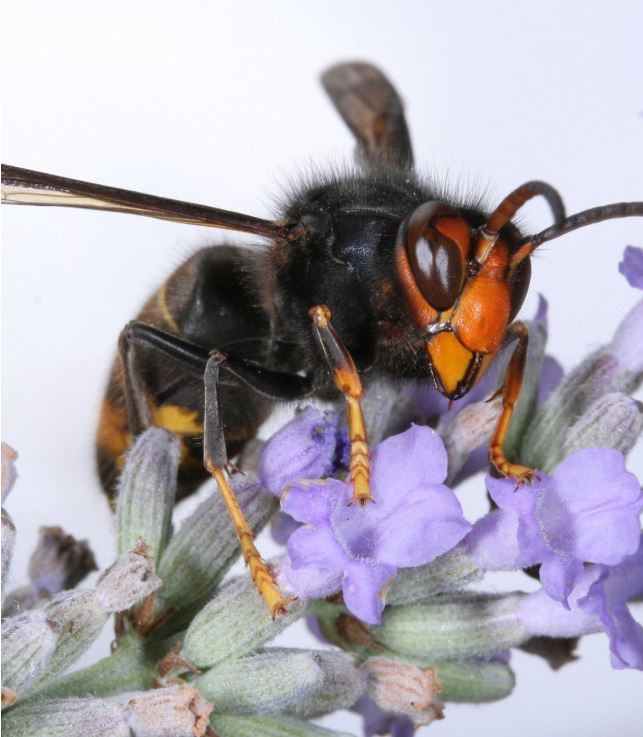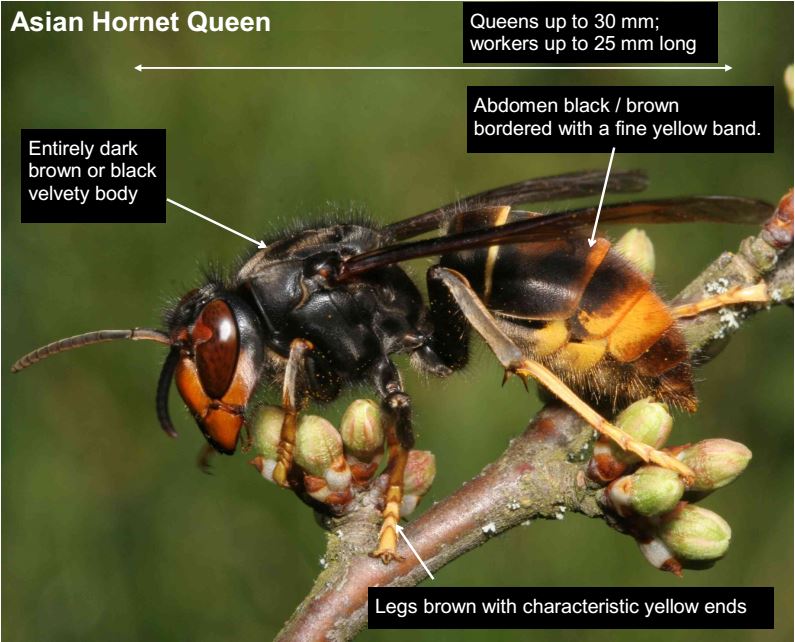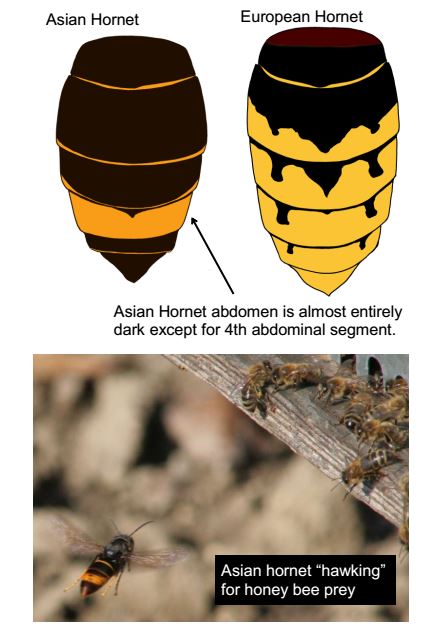Asian Hornet
Asian Hornet

Vespa velutina, sometimes known as the 'Asian hornet' (or more recently, and increasingly, as the the Yellow Legged hornet) is an invasive non-native species from Asia. It has recently arrived in France where it is spreading rapidly. As a highly effective predator of insects, including honey bees and other beneficial species, it can cause significant losses to bee colonies, other native species and potentially ecosystems.
The BBKA also now has an Asian Hornet Incursion map, displaying sightings by year, which you can go to by clicking here.
It is expected that the places it is most likely to be found in numbers are in southern parts of England (it may be able to cross the channel from France) or in goods among which it could be accidentally imported (such as soil with imported pot plants, cut flowers, fruit and timber). Active between April and November (peak August/September).
What to look out for:
- Vespa velutina queens are up to 3 cm in length; workers up to 25 mm (slightly smaller than the native European hornet Vespa crabro)
- Entirely dark brown or black velvety body, bordered with a fine yellow band
- Only one band on the abdomen: 4th abdominal segment almost entirely yellow/orange
- Legs brown with yellow ends
- Head black with an orange-yellow face
- Vespa velutina is a day flying species which, unlike the European hornet, ceases activity at dusk
The National Non-native Species Secretariat's (NNSS) identification leaflet, that all beekeepers are recommended to have a copy of, can be downloaded by clicking on this link:


If you think you have seen an Asian Hornet
Take a picture and email it with details of where you saw it and your contact details and email it to alertnonnative@ceh.ac.uk
Or simply use the Asian Hornet Watch app (see here for Android or here for Apple) on your phone to send a picture and a location via GPS in the app straight to the non-native species secretariat and National Bee Unit.
For more information visit the Non Native Species Secretariat website.
If it is safe to do so, you can send in a sample to the National Bee Unit for examination to confirm identity. However do not under any circumstances disturb or provoke a hornet nest as Asian Hornets are especially aggressive if provoked. The NNS will arrange for its destruction.
OBKA Asian Hornet Co-ordination
Eric Perkins is the OBKA Asian Hornet Action team co-ordinator. He can be contacted at AHAT@obka.org.uk
If you would like to be part of the OBKA Asian Hornet Action team you need to pass the Asian Hornet team test on the BBKA website; this ensures that you have appropriate BBKA insurance as a AHAT Team Member. You do not have to become a AHAT team member after taking the test. But you cannot become an AHAT team member without it.
Click here to go to the AHAT Team Member test on the BBKA website.